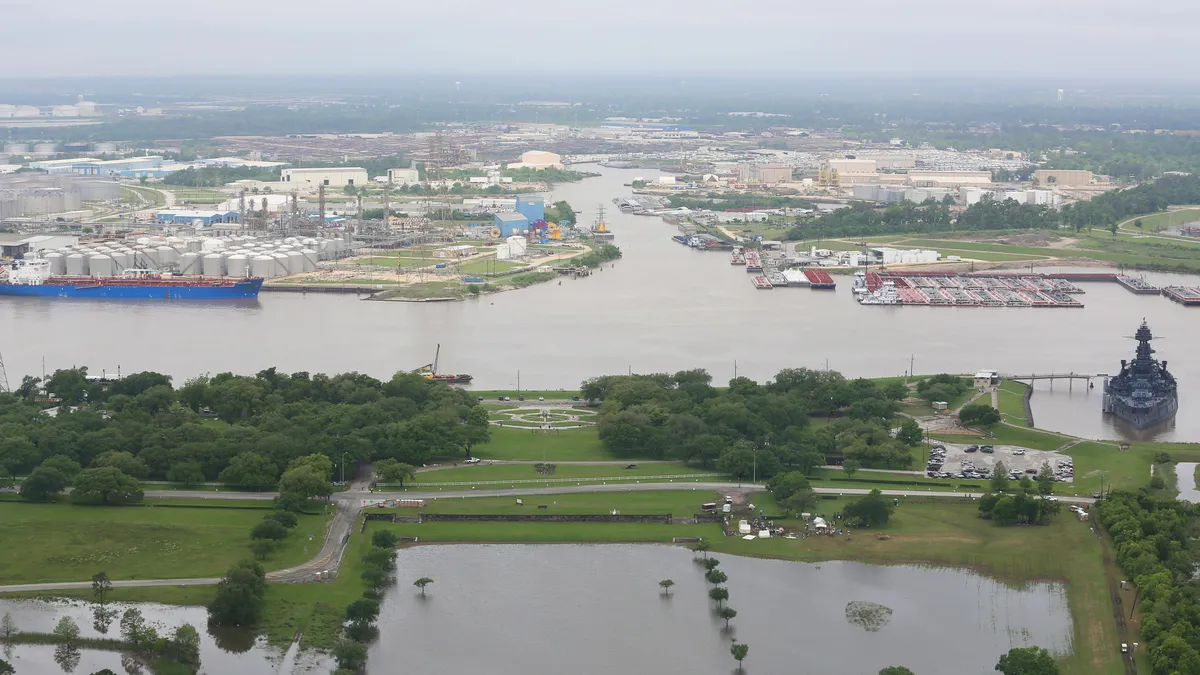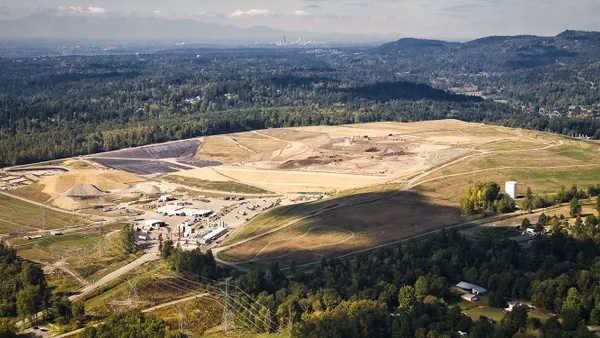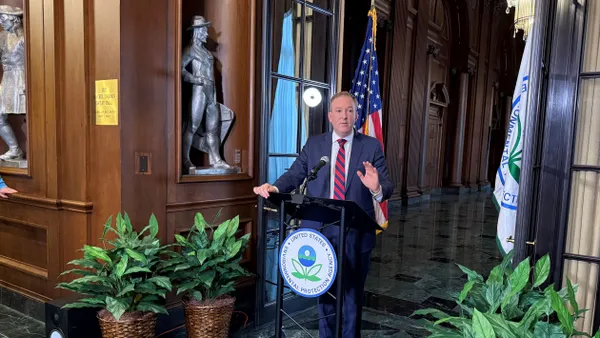Dive Brief:
- The Environmental Protection Agency announced Monday it has reached an agreement with International Paper Company and McGinnes Industrial Maintenance Corporation (MIMC) to perform a remedial design action for the San Jacinto River Waste Pits Superfund Site.
- The cleanup plan involves installing engineering controls prior to excavating 212,000 cubic yards of material contaminated with dioxin at an estimated cost of $115 million. EPA says the agreement is the result of "expedited" negotiations between EPA, MIMC and International Paper Company. The work will take about 29 months to complete.
- EPA Administrator Scott Pruitt said in a statement the agency, working with state partners and the U.S. Army Corps of Engineers, will "ensure that the remedial design removes all the contamination" quickly and safely to protect the health and safety of the surrounding area. In a statement, Jackie Young, executive director of the Texas Health and Environment Alliance said in a statement the agreement means cleanup "can move forward without being tied up in a court battle."
Dive Insight:
Even with a high price tag, a negotiated cleanup plan is likely seen as a favorable outcome for the responsible parties, especially compared to a costly back-and-fourth in court. As recently as January, it was reported that MIMC (a subsidiary of Waste Management of Texas) was involved in public campaigns related to the waste pits.
The responsible parties appeared to be favoring an approach that would focus on securing the cap over the pits, rather than taking the costly step of excavating the contaminated material — so the timing of an agreement to excavate could be seen as unexpected. It is worth nothing though, MIMC and International Paper said in online statements they were working collaboratively with EPA and are committed to protecting public health.
As EPA says the agreement is from "expedited negotiations," it appears this development is one of the first concrete steps seen publicly from Pruitt's "engagement or directed attention" on Superfund Sites that were chosen for "immediate, intense action."
The Waste Pits came to national attention after Hurricane Harvey flooded Houston and damaged the protective cap over the Superfund site which was shielding the San Jacinto River from dioxins. The Government Accountability Office announced in late Dec. 2017 it was investigating how well-prepared Superfund sites are for storms. In January, the agency told Waste Dive the review would start in a "couple months" and reviews generally take a year to complete.
Currently, the Office of Land and Emergency Management (OLEM), which oversees the Superfund, has no appointed leadership. Barry Breen, who joined the department in 2002, is Acting Assistant Administrator of OLEM, and President Donald Trump has nominated Peter C. Wright, managing counsel at Dow Chemical Company, to run OLEM. Wright's nomination will require approval in the Senate.














